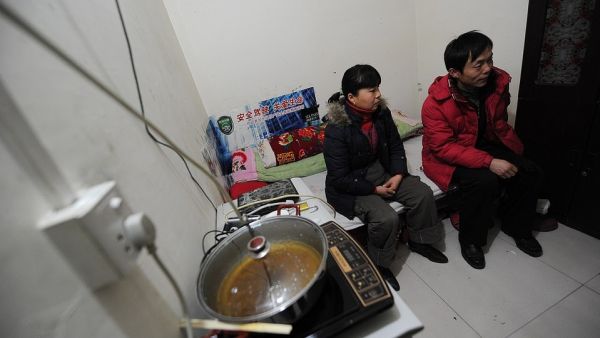Over a million people are living in subterranean tunnels in China 50 years after they were built as a bomb shelter during the Cold War.
Low income workers known as the 'Rat Tribe' now occupy the tunnels, which cover an estimated area of 30 square miles.
Construction of the underground city, dubbed 'The Dungeon', began in 1969 when the threat of nuclear war was at its peak.
That year, Chinese Communist Party Chairman Mao Zedong ordered his citizens to 'dig deep tunnels, store food, and prepare for war'.
10,000 bunkers were built, and when the nuclear threat never materialised, migrant workers and students were ushered into them to live.
The living conditions inside the bunkers are basic, with mold and stagnant air due to the lack of ventilation.
Although there is electricity, plumbing and sewage systems, it is far from luxurious.
Those living in the bunkers often share bedrooms, sleeping in bunk beds, and kitchens and bathrooms are also communal, leading to overcrowded, dirty conditions.
The underground bunker metropolis is technically illegal to live in following a 2010 ruling by Beijing authorities after safety concerns were raised.
However many continue to inhabit the underground space.
Some of the residents have lived in the complex for decades, while others use the bunker as a stop gap before finding a place to live above ground.
Rising rents in Beijing are forcing many of the city's migrant workers into small dwellings underground.
Insurance salesman Wei Kuan lives in one of the basement apartments. Speaking to Al Jazeera, he said: 'I am doing well because I'm scared of being poor.
'Many of my colleagues live above ground, but I think it's too comfortable; this place forces me to work harder.'
This article has been adapted from its original source.








